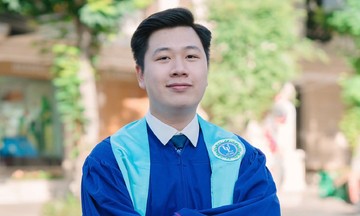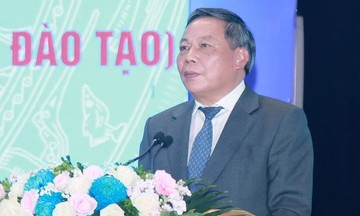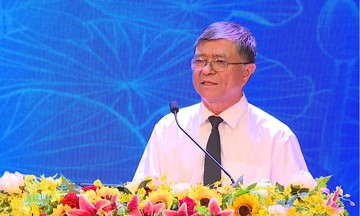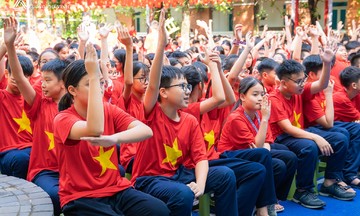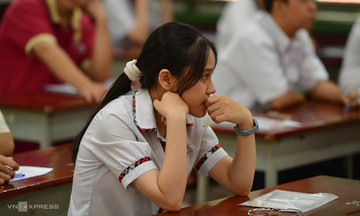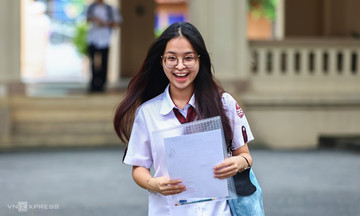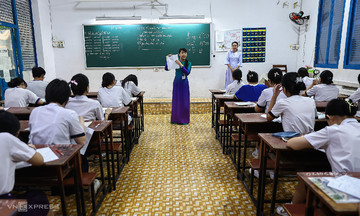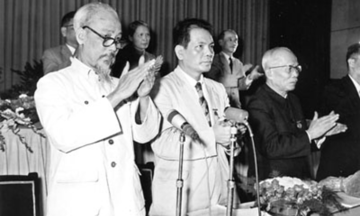22-year-old Nguyen Manh Duong, from Hanoi, recently completed his Data Science and Artificial Intelligence program at Hanoi University of Science and Technology (HUST) with a 3.94/4 cumulative grade point average (CPA), graduating with distinction. Annually, only about 7-8% of HUST students graduate with distinction (3.6/4 or higher), and very few achieve a CPA above 3.9 like Duong.
Although he hasn't officially received his bachelor's degree, in March, Duong received an acceptance letter for a doctoral program in computer science at the University of Illinois Urbana-Champaign, along with a full scholarship worth approximately 9.8 billion VND for 5 years. This university is ranked 33rd in the US, according to US News & World Report, and its computer science program is ranked in the top 5.
From a chemistry student at the High School for Gifted Students, Hanoi National University of Education, to a HUST student, Duong said he never considered studying abroad or pursuing research. "It all happened by chance," he said.
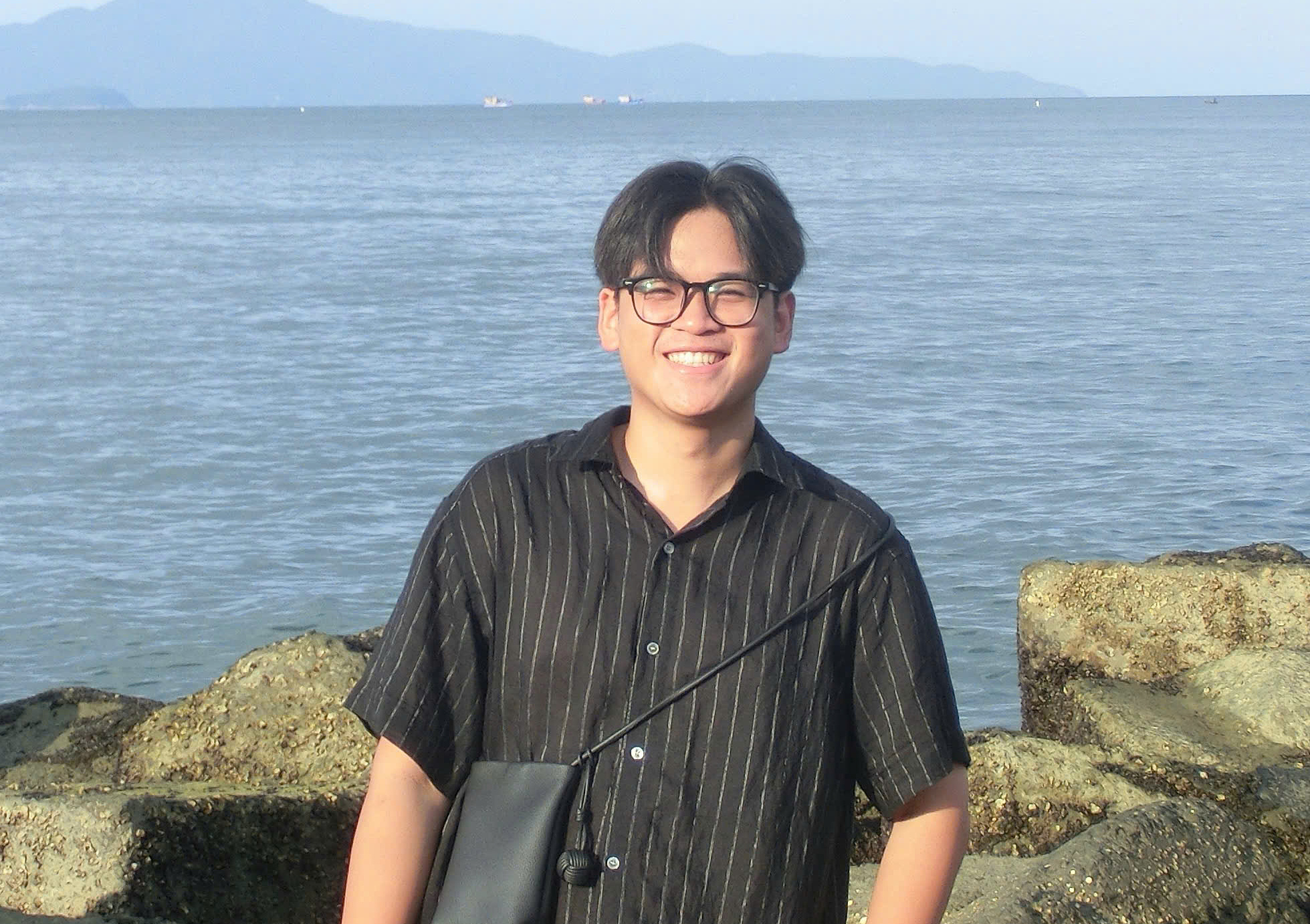 |
Nguyen Manh Duong. Photo courtesy of the subject |
Nguyen Manh Duong. Photo courtesy of the subject
Duong entered university in 2021. At that time, artificial intelligence (AI) was a new field, not yet widely recognized in Vietnam. However, upon researching it, Duong saw its potential and decided to switch fields.
Having just met the admission requirements for HUST through a combination of academic records and an interview, along with a second-place prize in the national science and technology competition in chemistry, Duong felt somewhat insecure surrounded by many talented peers with stronger backgrounds in math and computer science, better suited for the program. But this also motivated him to learn as much as possible about AI.
"I didn't study for grades, but to understand," Duong explained. He constantly sought knowledge by asking many questions and finding the answers himself, deepening his understanding and broadening his perspective.
This learning approach earned Duong A's and A+'s in most subjects, even in those he considered the most challenging, such as calculus and probability and statistics, maintaining a GPA above 3.8/4 from his first year.
Duong also participated in many extracurricular activities, serving as vice president of the university's event organization club. In his second year, he participated in the "Mr & Miss HUST" competition and won the title of Mr. HUST.
In the second semester of his second year, Duong interned as an AI engineer at a company. After some time, he realized it wasn't a good fit because it didn't allow him to explore new things. "At that time, despite having top grades, I felt lost. Working at a company wasn't right for me, and I didn't feel qualified for research," Duong recalled.
After a period of uncertainty, at the beginning of his third year, Duong decided to explore HUST's AIoT Lab to try the research path. Although the application deadline had passed, Duong emailed Dr. Nguyen Phi Le, then head of the lab and now director of the Artificial Intelligence Research and Application Institute (AI4LIFE), expressing his interest. He was accepted after a direct interview.
Scientific research, for Duong, was more challenging than university studies because it involved a lot of new knowledge and extensive reading. Moreover, the field of AI is constantly evolving. However, after 3-4 months, Duong gradually adapted, thanks to the dedicated guidance of Dr. Le and senior lab members. "She guided me meticulously, from how to read a research paper to knowledge that would have taken me years to acquire on my own," Duong shared.
Working within the AIoT Lab also provided Duong with opportunities to collaborate with numerous professors and experts, receiving valuable advice and direction to find his path. Focusing on federated learning and medical AI, Duong became the main author or co-author of 7 publications at prestigious international conferences, including one at ICCV, a top-tier conference on computer vision. By the end of his third year, Duong began considering studying abroad.
Planning to apply the following year to have more time for research and to build his profile, Duong applied only to the University of Illinois Urbana-Champaign. His selection criteria were a "top 5 US university in computer science" and a "lab focused on medical AI." While participating in a joint project between HUST, VinUni, and the lab, Duong met some faculty members from Illinois Urbana-Champaign.
Duong prepared his application in about 3 weeks, including transcripts, research achievements, letters of recommendation, and a statement of purpose outlining his reasons for choosing the field and his aspirations for studying in the US. For letters of recommendation, he requested them from three professors, both domestic and international, who had supported him through various research challenges.
"Receiving the acceptance notification, I was overjoyed because I wasn't very confident. My research journey started much later than many others," Duong said.
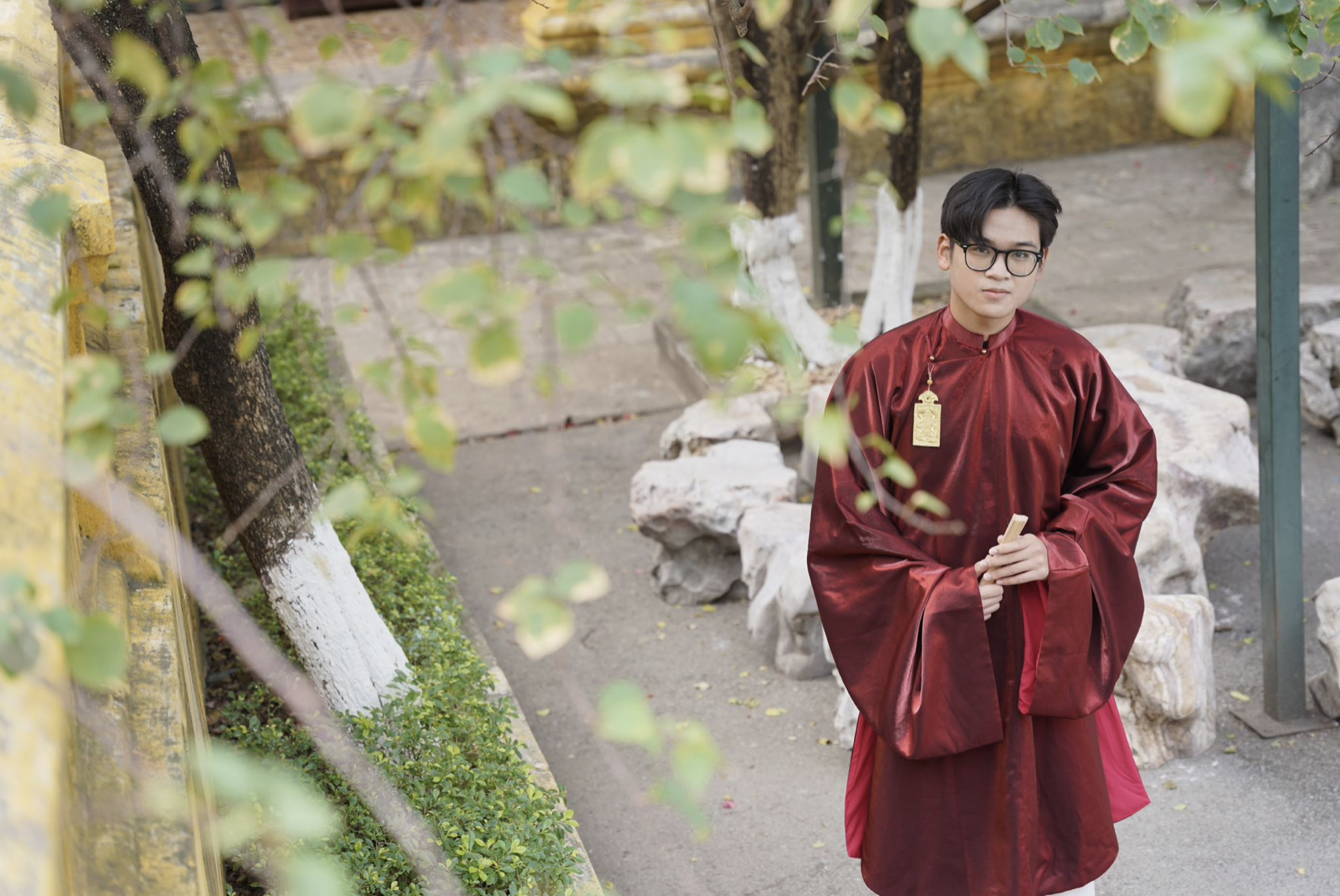 |
Duong participating in the "Mr & Miss HUST" competition in 2022. Photo courtesy of the subject |
Duong participating in the "Mr & Miss HUST" competition in 2022. Photo courtesy of the subject
Dr. Nguyen Phi Le said Duong is one of three AIoT Lab students to receive a full doctoral scholarship in computer science in the US before graduating from university this year. "He is a well-rounded student in terms of logical thinking, research ability, and soft skills," Dr. Le stated. "His achievements are a testament to his excellence."
Duong will travel to the US next month, a month before receiving his bachelor's degree. Currently, he is conducting research at the AIoT Lab, equipping himself with knowledge of economics and social sciences to gain broader perspectives before going to the US.
"I hope to have joint publications with the HUST lab during my studies in the US," Duong said.
Duong Tam



